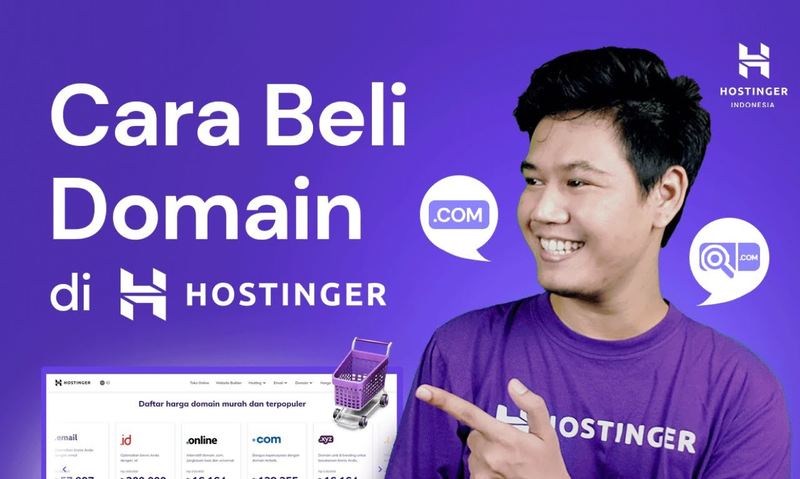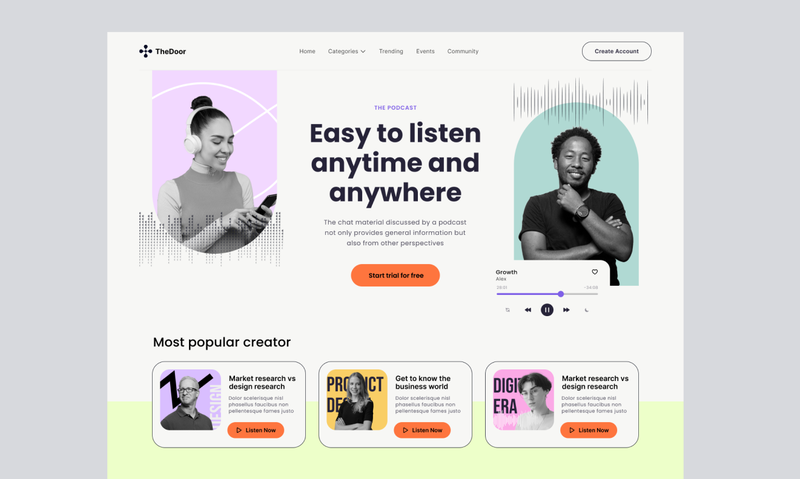What is Content Marketing


Table of contents
Many people tend to ignore advertisements, but on the contrary, we are often drawn to engaging content from a favorite brand on social media. This shows the stark difference between advertising, which is often considered irrelevant, and content marketing that is specifically designed for a specific audience.
Content marketing, with its tailored channel selection, content type, and personalization, not only meets the needs of the audience, but also has the potential to turn them into loyal customers.
Want to know more about content marketing? Let's explore more about what content marketing is, and what the benefits are for businesses.
What is Content Marketing?

In short, content marketing is a marketing technique through content. The complete definition of content marketing is a marketing strategy that relies on useful, relevant, and interesting content for a specific target audience.
The content presented will be different from news content whose main purpose is to provide information. The main goal of content marketing is to build strong relationships with audiences, increase brand awareness, and encourage audiences to take desired actions, such as making purchases or subscribing.
Why is Content Marketing Important?
In today's digital era, content marketing is one of the most important factors in business strategy. Apart from the fact that content marketing is more cost-efficient than advertising, there are many other factors that make content marketing play an important role in business growth. Let's discuss them further!
- Content marketing builds brand awareness. High-quality, engaging content can increase your brand presence. By presenting informative and entertaining content, content marketing shows that your business not only excels in its field, but will also understand what consumers need.
- Content marketing also increases interaction with customers. Through content on blogs, social media, or podcasts, content marketing opens the door to two-way communication. Customers can give feedback, and you can respond directly. Content marketing strengthens relationships and makes customers feel valued.
- Through content marketing, your market reach expands. Content shared through various platforms will expand your market, opening up opportunities to meet potential customers from different backgrounds and locations.
- Content marketing is also effective in generating leads and sales. The interesting content you present can be a magnet for leads, encouraging people to provide their contact information, which you can then use in the further sales process.
- With content marketing, you will gain deep insights into what your customers want and need. Through interaction and feedback on your content, these insights will help you develop a better content or product approach.
- Compared to traditional marketing, content marketing is a more cost-effective option. The content you create can be long-lasting and relevant, even content created years ago can still be useful to your customers.
With all these benefits, it's clear that content marketing is a strategic and effective choice for any business. Content marketing is not just about what you offer, but how you communicate and build a closer relationship with your audience.
It is important to understand that content marketing is not just about the content itself, but how it can influence the audience and increase interaction with them. This is the true power of content marketing.
Content Marketing Examples and Applications
Content marketing is divided into several types. And of course, each type of content marketing has its own functions and advantages. To determine what type of content marketing is suitable for you to use, let's look at the examples of content marketing and its application below.
Website Content

It is undeniable that almost everyone uses the internet to find information or buy products. And this is the role of a website, which is an important bridge between your business and customers.
Content on a website generally contains important information about the brand or product. Some of them are, products offered, customer service, stories about the brand itself, or ongoing promotions.
In order for all the messages or information delivered to be effective, you need to use copywriting techniques in writing your own content. Why? Because with copywriting, you can convey the information above persuasively and according to your target audience.
Blog

Informative and relevant blog articles are one of the key pillars when content marketing is the strategy. It not only increases reader engagement, but also reinforces your position as an authority in the industry. This is important for building trust and credibility in the eyes of your audience.
Also, the importance of SEO in a blogging strategy cannot be ignored. Search engine optimized content with proper keyword usage, catchy titles, and good article structure, will go a long way in increasing your blog's visibility in search engine results.
E-Book

The main advantage of ebooks in content marketing lies in their ability to convey information in a more in-depth and comprehensive manner. Ebooks can cover a wide range of topics, from educational guides to industry analysis, including books on specific topics, novel reviews, and even legal books. Any of these types of content will allow a company to showcase its expertise and increase its credibility.
Many brands have implemented this strategy, but one brand that stands out is Hubspot. If you've ever read one of their articles, most of them offer a more comprehensive discussion through e-books. Blog visitors just need to enter their email address and the ebook will be sent to them.
The email provided by the visitor can be used to capture leads. This not only helps in building a database of potential customers, but also enriches the interaction with the audience through useful and in-depth content. We'll talk more about email marketing content types below.
Video

There's no denying that video is a form of content marketing that easily gets the attention of potential customers. Its advantage lies in its ability to convey messages in an audiovisual manner, which makes it more appealing to audiences.
However, this does not mean that every video will be able to attract customers. A well-designed video should be able to tell a story, evoke emotions, and connect the audience with your brand in a more personalized way.
To achieve this, you need to focus on four key elements: First, the content should be informative and engaging, in line with the audience's interests. Second, use compelling storytelling to create an emotional connection. Third and fourth, don't forget about CTA (Call to Action) quality and technique for your video.

The main benefit of email marketing is to establish more personalized communication with target customers. This is because we send our messages or campaigns through their personal contacts. In addition, email marketing allows the dissemination of information more quickly and practically with a wider reach when compared to other conventional promotional media.
To maximize the potential of email marketing, it is important to personalize, use catchy titles, create short and clear messages, and include clear CTAs in the email. This will help increase open-rates and encourage customers to take specific actions, such as purchases, downloads, or donations.
Podcast

Podcasts are easily accessible and can be enjoyed while doing other activities, such as exercising or driving, allowing brands to engage audiences for a longer period of time.
Furthermore, using content marketing in the form of podcasts is perfect for millennials, who are the main consumers today. By including storytelling and personal elements, podcasts can create a personalized experience, building an emotional connection with the target audience.
Social Media

Social media is now not only a place to socialize, but can also be a strategic marketing space. By utilizing social media content forms, brands are able to reach more audiences more effectively and cost-effectively. Relevant and engaging content can invite interaction, build relationships, and increase brand awareness. Social media marketing strategies are also proven to generate leads that can potentially become loyal buyers.
Other benefits include increased product sales and ease of sharing important information. By choosing the right platform, such as LinkedIn for professional networking or YouTube for video content, you can expand your reach and tailor your strategy to your target audience.
Influencer / KOL (Key Opinion Leader)

With the rapid growth of social media, influencers have become an important key in building trust and credibility of a brand. Before choosing an influencer, you should know the niche of the influencer you are going to choose. With that, you will be able to reach the relevant audience, as well as build relationships with the right consumers.
In addition, you should also be able to create a well-thought-out marketing strategy. Starting from setting clear goals, understanding the target audience, to looking at the engagement and conversion rate of the influencer. By paying attention to these factors, you can choose which influencer is the most suitable.
Benefits of Content Marketing in Business
Content marketing has proven to be an effective strategy in business competition, especially in today's digital era. Here are the benefits and effectiveness of content marketing for your business:
- Preferred Marketing Approach: The statistic that 70% of respondents prefer to get to know a brand through content rather than traditional advertising is very reflective of consumer behavior in the digital age. Today's consumers are constantly exposed to tons of advertisements, resulting in 'ad fatigue'. As a result, they tend to prefer content that adds value, be it educational, entertaining, or inspiring.
- Effective ROI from Search Engines: A whopping 93% of web experiences start from search engines, emphasizing the importance of SEO in content strategy. Additionally, 49% of marketers report that organic search provides the best ROI, making it a vital component of content marketing.
- Prioritize Audience Needs: In the B2C sector, 65% of marketers now prioritize their audience's information needs over sales or promotional messages. This shift towards audience-centric content reflects a deeper understanding of consumer preferences and behavior.
- More Efficient With AI: The integration of AI (Artificial Intelligence) in content marketing has surged rapidly, with 82% of marketers saying AI has influenced their content creation strategy. AI tools are increasingly being used for tasks such as generating new topic ideas, researching titles and keywords, and even writing content.
Content Marketing Strategy
A successful content marketing strategy is the key to getting all the benefits we mentioned above. A content marketer needs to ensure that the content we create is measurable and has a clear goal. So what are the content marketing strategies that you need to know and implement for the success of a business's marketing content? Let's take a look at the following!
Define Your Goals
The first step you need to implement in your content marketing strategy is to determine what your content goals are. This will involve understanding your overall business goals and ensuring that they are specific, measurable, achievable, relevant, and timely. Prioritize your goals to focus on the most important aspects first.
Understand Your Audience
Before contentmarketing, conduct in-depth personal research to understand your target audience. Use tools like Market Explorer to get detailed information about your audience, such as demographics and social media preferences. After that, pour all the information into buyer personas.
Audit Existing Content
Please review your current content to identify gaps and opportunities for improvement. This includes reviewing topics, formats, and performance metrics to understand what is relevant to your audience. Conducting regular content audits will also help in optimizing existing pages and can lead to better organic traffic.
Develop a Content Plan
Go ahead and create an editorial plan and content calendar in content marketing, considering your audience in every aspect. Prioritize your actions by looking at potential traffic gains, campaign focus, resource availability, and product/service timelines. Find relevant topics with audience research and competitive analysis. Tools like ContentShake can help you find relevant content ideas in content marketing.
Content Creation and Management
Please choose a Content Management System (CMS) that suits your needs for content creation, publication and analysis. A proper CMS should be easy to use, customizable, secure, and cost-effective. Therefore, it is very important to have content management to ensure that every content will be in accordance with business standards and policies.
Measure Performance
Go ahead and set content marketing metrics that align with your business goals. Content strategy is the underlying approach to selecting these metrics, which should be divided into primary and secondary metrics. Primary metrics could include revenue generated and number of leads. While secondary metrics could include organic traffic, rankings, and shares. Use tools like Google Analytics to measure the performance of your content against these goals. Make sure that your content marketing strategy will be effective and have a direct impact on achieving your business goals.
Conclusion
In today's digital age, content marketing will be more efficient than traditional advertising to increase customer engagement, expand market reach, and generate leads. High-quality content can help understand customer needs and develop better products or content approaches, offer good ROI, and maintain long-term relevance. One of the keys to a successful content marketing strategy is consistency and commitment. With that, sooner or later, you will get the desired results. If you want to be more serious, you can hire a content marketer or also learn about content marketing from books, webinars, and content spread on your favorite social media.


Comments 4